Guest post by David Dawson
Music always seems to have been an evolving art from, from changing genres, instruments, styles and finally technologies. In 1948 vinyl records were first being used and they stuck around for a long time, but looking at the last 20 years we have moved from tape through to CDs and onto streaming via various fads and fashions in between. Streaming has possibly been the biggest advancement out of all of the previous and has changed the way we consume music entirely. From holding a physical item containing a finite number of songs to having within our devices an unlimited access to just about any music we could think of has proved invaluable to most music lovers. Naturally in a flippant world these technologies all went from hero to zero, state of the art to charity shop, so it is hard to firmly believe that streaming is going to be here forever. The question is though what could come next? I find it hard to see an advancement as big or as different as the CD or tape was for the day considering we already have just about everything, but to be honest I doubt someone from a vinyl era was picturing an iPod touch complete with doodle jump and Justin Biebers debut album. One thing is for sure though, with Sony announcing a 21% rise in streaming revenue figures last year, we are now more engaged with digital music than ever before.
With this rise, there has naturally been a decline in our more physical engagement with music, even as recent as the CD, which arguably is still fairly prominent. The market for CDs these days now seems to be nothing more than a steep cliff edge with a strict one-way system, and it is fairly plain to see why. I used to purchase CDs regularly for various reasons, all the way from knowing and enjoying the album, to simply liking the cover art. This eventually moved on to an ideal of only purchasing CDs from my favourite artists or any particular album that strikes a chord. Honestly, throwing my mind back now I can't remember the last time I even found myself in the CD section of a supermarket, let alone in a music shop or, god forbid, actually buying music. The issues in this modern world with CDs are the time, money and effort for the consumer. Firstly, there is a certain risk involved with buying a CD. This may sound strange but I guarantee most of us have been stung before, when an artist you love releases a new album or there is a particular song you enjoy on the radio, as consumers we more often than not take a 10-15 pound bet with ourselves that the rest of the album is going to live up to all of our expectations. Buying a CD on the promise of one or two songs has always been a dangerous game but was often the only choice beside dodgy covers on a stone age version of YouTube. Whilst there were occasions that albums did live up to their name, there were often occasions where they did not and we were lumbered with a constant reminder of the money we had wasted sat on our shelves. There is simply no need to take this risk in the streaming market, we have a choice, we either add the one or two songs we do enjoy to a playlist or we binge the album, and if it fails, no harm done, just an hour or so wasted. When the option of access to any music you want at any time is available, why would anyone take the time to go and purchase CDs, that have a finite number of songs, a finite amount of access and take more than a few taps to get hold of, or at least a day for delivery. Everyone wants to have everything all the time now and to be honest streaming does offer that, can you imagine carrying around the number of CDs to cover every album on Spotify or iTunes?
The move to a digital world of music strays further than streaming as it seems to have consumed all stages of the music process. When we think to how songs used to come into existence, we romanticise about times gone by of John Lennon and Paul McCartney strumming acoustic guitars and dreaming up riffs, followed by the whole gang coming together to recording them before they were pressed and sent to the world. Overall, a pretty lengthy process from start to finish involving many hours and many people. This seems miles away now when we think about producers who digitally write in catchy riffs or instrumentation on their own laptop before recording a vocal on top, all of which can be done in their own homes. Then the simple process of uploading the song to any and every platform before sharing it around on social media. To be honest, for me this is a benefit, anyone who has a passion for music can access the technology to write, record and distribute their own projects without being dictated by record labels or begging for some financial backing to get a song recorded and pressed. How many more people get to live their dreams writing and sharing their music, even as just a hobby, as a result of these developments?
The flip side of this is that instrumentalist musicians like myself are finding ourselves more and more obsolete. School funding for music is constantly undergoing cuts and I would not be surprised to see it demoted to simply an extra-curricular activity within the next ten years, if not sooner. Therefore the number of kids picking up instruments and developing musical talents is no doubt going to decrease, but in a world where a number one hit can be dreamed up on a laptop and music can be accessed anywhere, anytime, is instrumental performance really the way going forward or a simple nod back to the past?
Even live music is too paving way for the digital era; gone are the days of a drummer, bass, guitar and lead singer and in are the days of pyrotechnics, staging and a laptop. To be honest, this is often due to the music itself being much more production and technology based from the very start and including sounds not always possible to replicate on instruments. However, it does seem underwhelming that full bands and big live set ups have now been replaced with an extension lead and a computer. Live shows now seem to be much more reliant on tightly choreographed routines, quick changes and lighting to make the experience more of a show or spectacle, but does this take away from the music? Again, this is something that is easy to romanticise about, dreaming of times gone by of live instruments plugged into monstrous amplifiers, but to be honest for me a live concert has always been more about the experience, the feeling you get for an artist when you've seen them live, the atmosphere of a crowd all singing the same lyrics, and whether the music is performed digitally or not, nothing can take away the physicality of that. This for me is the key, and what reassures me that digital age or not, music is safe. Whether produced by a DJ on a MacBook or a pianist on a Steinway, that unfathomable feeling we all get singing along to our favourite tune with our favourite artist, sharing the magical moment with thousands of like-minded fans. Having this experience as a performer I can safely say the high is second to none, engaging with an audience and the fulfilled feeling of entertaining is truly breath-taking. Who cares that we can access infinite music in our pockets? We all know it's not the same. That's why artists still tour, that's why millions of us flock to festivals and that's why hundreds of shows sell out every year.
It is always easier to look back with rose coloured spectacles and thoughts of 'what if' than to look forwards, and I am as guilty of this as anyone else, but I must admit I couldn't live without streaming, it makes music so easy and I now have the opportunity to access more artists, more genres and more songs than ever, and to be honest, that for me is a huge positive. Furthermore, whilst it is easy for me to be cynical about live music being more about laptops and backing tracks and reminisce about days gone by, this is more due to music in general being more reliant on technology then is used to be, and I don't have a problem with this either. For me good music is good music whether produced on a laptop or recorded part by part with a full orchestra, or sometimes a combination of the two. So, to the original question, is the physical world of music dead, and, are we now completely digital? I think the answer is no, with a fashion of retro and vintage there will always be some nostalgia in us that looks at vinyl as some superior art form from the good old days, and one day CDs may be viewed like this too. Furthermore, the unexplainable feeling we get when taking in live music that continues to encourage people to spend all their savings on expensive tickets really underlines that human element that still exists, what is there more personal than a lyricist singing to thousands about their latest love and suffering, pains and pleasures? Nothing, is the answer. The fact that despite being stuck inside with access to as much music as we please, streaming figures are actually down and we are all staring at our now redundant tickets with sad puppy dog eyes just shows how much we still crave the human aspect of music. In a world of change the future is always scary and it's our nature to cling to fond memories of the past, and music always makes up a big part of this. As long as that remains the same, I don't think the physical age of music will ever die. The digital age is in the driving seat for now though, and to be honest, I'm excited to see where it takes us.
David Dawson
2 Comments
'We are never getting back together' - Was Taylor Swift right to break up with streaming services?3/3/2019 Hey Guys! This is a Guest Post, written by my super-talented best friend, David Dawson, who's in his final year studying Music at University (so he probably has more of a right to judge music than I do!). Hope you like his piece! Who remembers the good old days when you would log onto iTunes and buy a song for 99p, or when you’d rip all your cd music onto your Sony Ericsson with the slide up screen to then sit on the back of the bus eagerly Bluetoothing them all to your mates? To say this was still happening less than ten years ago is pretty crazy, especially in comparison with how most of us consume music these days. I am one of the millions of people who pay monthly for the pleasure of accessing all of my favourite tracks in one place and in one convenient app. I imagine that most of the people who read this will have some use or experience of Apple Music, Spotify or any other streaming service, whether it’s using seven different email addresses to push your 30-day trial to the max, having a free membership at the sacrifice of adverts or paying a full subscription. My question is, should we? Obviously, as a consumer the benefits seem logical, why wouldn’t we want all the music we could think of, and more, all playable from your tinny mobile speaker? Streaming services allow us to access music in a way we have never experienced before, giving us the chance to not only enjoy the same tunes we know and love, but to find new music quicker than ever. Obscure music for me used to mean Track 10 from an album only known for the title song, but with streaming services you can pick yourself a band no one has heard of and shove it in the faces of your mates hoping to get discovery rights - should they hit fame. So, what is my big issue with streaming? Well, it’s not exactly a secret, thanks to Taylor Swift and Jay-Z, that artists don’t get much money from streams. In fact, one single stream normally amounts to a fraction of a fraction of a penny being paid out to the artist. Of that tiny pie, the record label eats most of the good stuff, leaving only the accidental fruit seed and that little bit that got dropped on the floor for the artists. A look into the proper figures would tell us that labels actually do pretty well from our extensive use of streaming, with the three major labels making a combined $6.93 billion in 2018, and that this is up ten per cent from the figure in 2017 and will probably rise again for 2019. This for me causes an issue with our perception, as we all know a tiny piece of a near $7 billion dollar-sized pie is actually pretty big, but does that make it fair? When Taylor Swift decided to effectively boycott streaming services, removing her music initially in 2012 and refusing to release her new album at the time, Red, on their services, I, as I imagine many people did, scoffed at the news. The thought of someone like Taylor Swift complaining about how much she was being paid seemed almost laughable to me, and I certainly wasn’t going to make a wooden sign and start marching in her support. But should we have all done more to get on her side? Yes, Taylor Swift doesn’t exactly need more money, but the reality is that streaming services don’t get artists the money they deserve for the hard work they put into their music, and this is what she was protesting. Whatever job you do, and however much you earn, I’d say it’s fair for anyone to ask for an acceptable amount of payment. Of course, Taylor was brought around once some terms were put in place, but the picture hasn’t much changed since. The issue for me seems to be that streaming services have the monopoly. Even for a huge artist, if your music is not on all the major streaming sites it is a fact that the exposure you and your music gains will be smaller, and as streaming counts for charts these days, your chances of hitting higher in the Top 40 is significantly reduced. This still may be hard for most people to relate to, so the issue I would raise, and the main issue as far as I am concerned, is how this affects smaller artists and new music. Being a user of Spotify I know how great it is for discovering new music, as is Apple Music and other streaming services. I can easily find playlists to match my exact needs or mood, or that fit into a particular genre that I enjoy, and within these playlists, while I may find some of my old favourites there is almost always one or two new tunes that really catch my attention. Therefore, for an artist that is just starting out, or even on the way up, is not being on the popular streaming services really an option? The priority for these artists at this stage is obviously to gain as much exposure as they possibly can and to find an audience for their music, which streaming allows. However, artists like this often don’t have huge backings of record labels and to continue recording music and trying to expand revenue is a requirement. When we consider these artists, instead of millionaire popstars, we start to realise how unfair payments for music are a big issue, which is why I questioned whether we should have offered more support, or at least approval, when Swift tried to make a point. Similarly to how Swift threw her own weight around to make some progress, other larger artists are actually able to use their popularity and streaming figures to negotiate more favourable terms for themselves. However, this is a luxury that smaller artists do not enjoy, meaning that while established and rich artists may be able to make some extra money, those with smaller followings and less financial backing are only able to make the minimum, supporting that age old saying about the rich getting richer whilst the poor get poorer. Jay-Z was another big name who recognised the injustice, setting up his own streaming site, Tidal, and moving all his music across. Despite Tidal paying more, it is still significantly small amounts per stream, which still means that artists would have to get thousands of listeners to make any significant amount, which for most artists starting out is not a reality. The ultimate point that I am trying to make, therefore, is that as much as we use or enjoy streaming services, maybe we should have been marching with Taylor and supporting the progress she was trying to make, and that now we should still be scrutinising these big streaming services and trying to generate change. As was the problem with Swift’s actions, it is hard to get people to empathise or sympathise with a millionaire expecting more money. But I would emphasise to people that no matter what their vocation or salary, if they were not paid a fair amount for their honest labour, they too would feel a lack of justice, and that when we consider the smaller artists attempting to make a career for themselves, is it fair that they have to accept tiny payments in exchange for their exposure and advancement? After all, there would be little point in having a great platform to enjoy music on, if there was no new music for us to enjoy. David Dawson |
AuthorHello! I'm currently studying Philosophy & Theology at Oxford University, UK. Having always loved writing and music in equal measure, and having always hated decision-making, I figured hey, why do I need to choose between the two? Archives
May 2020
Categories
All
|
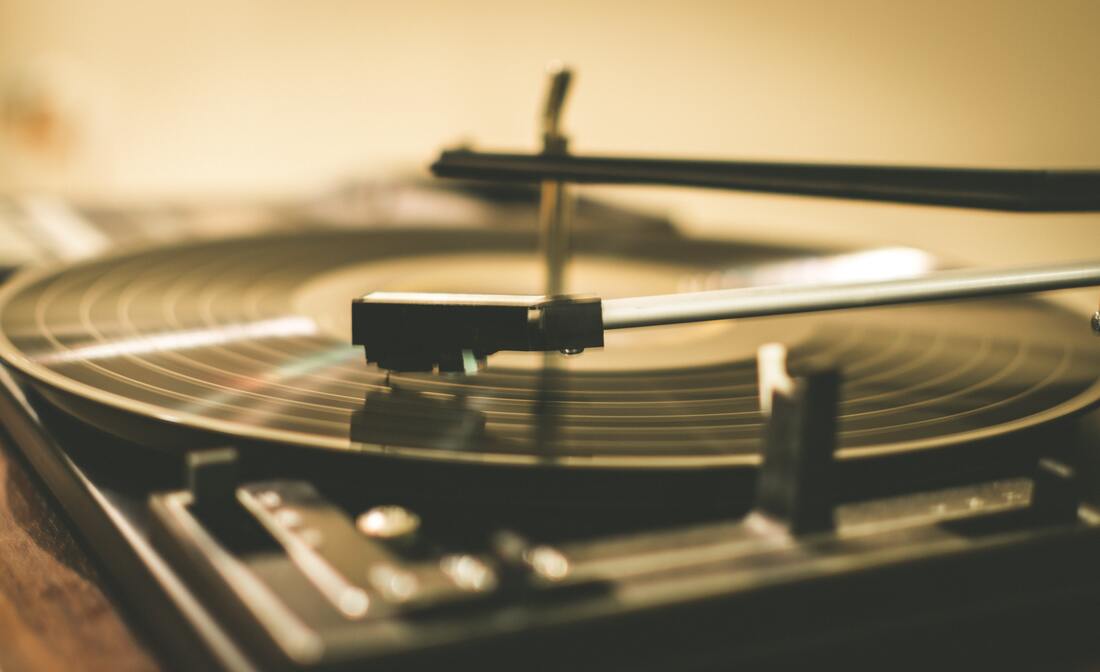
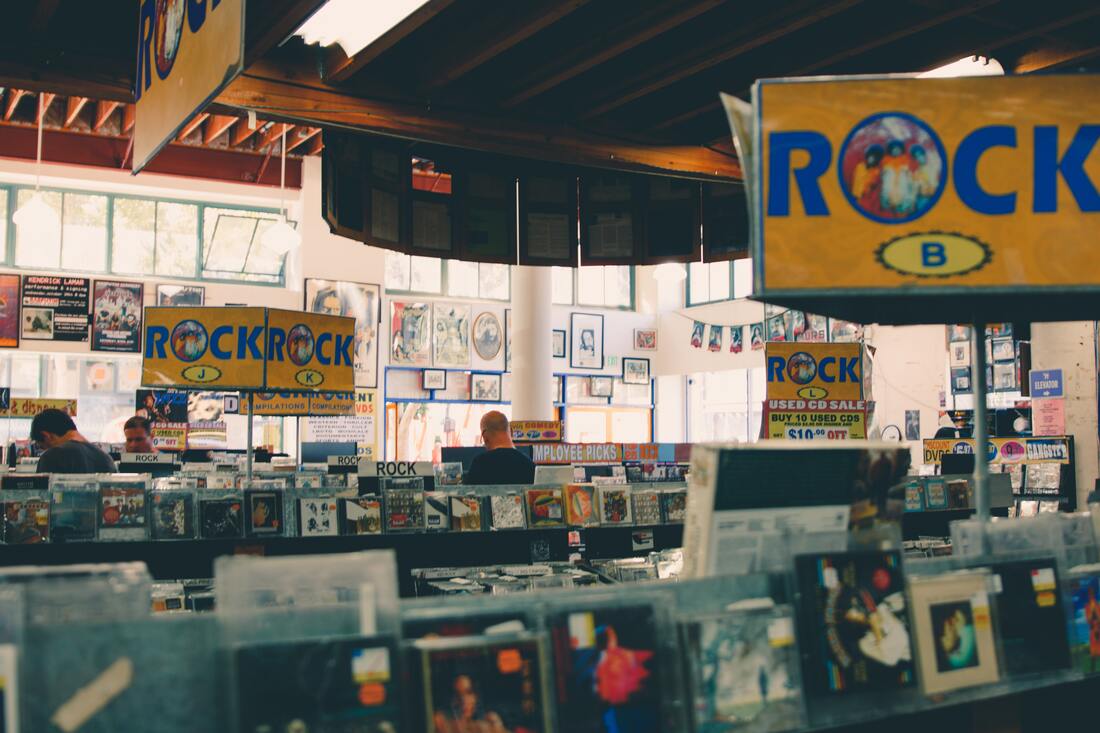
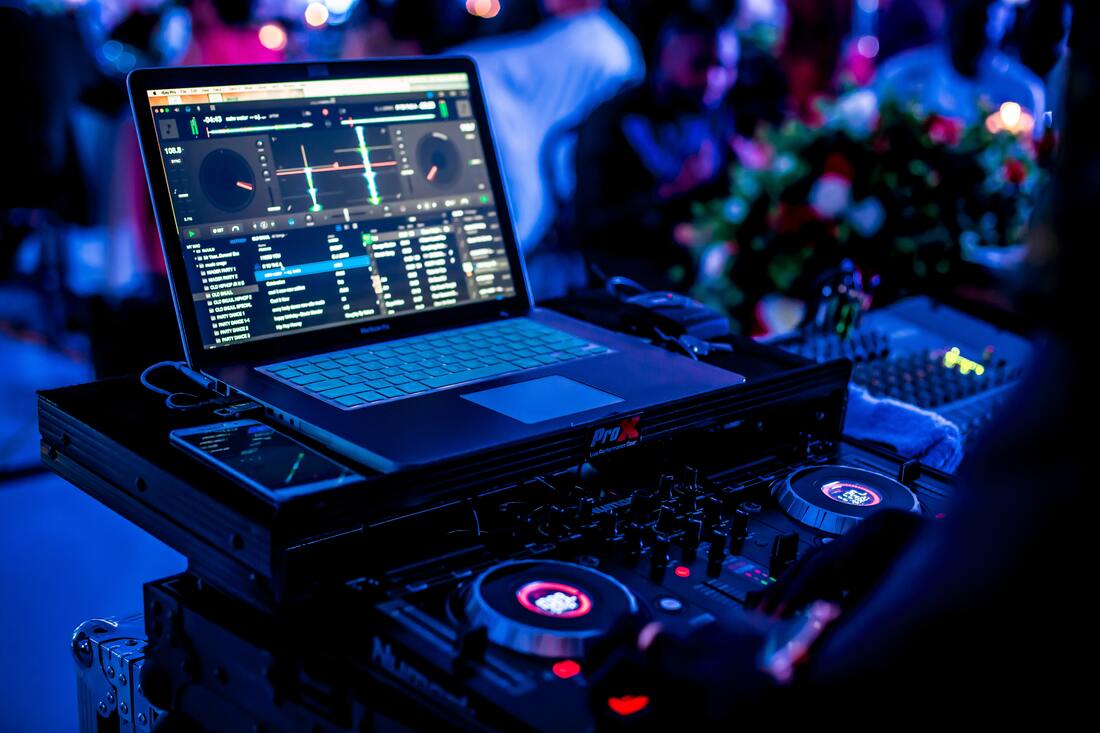
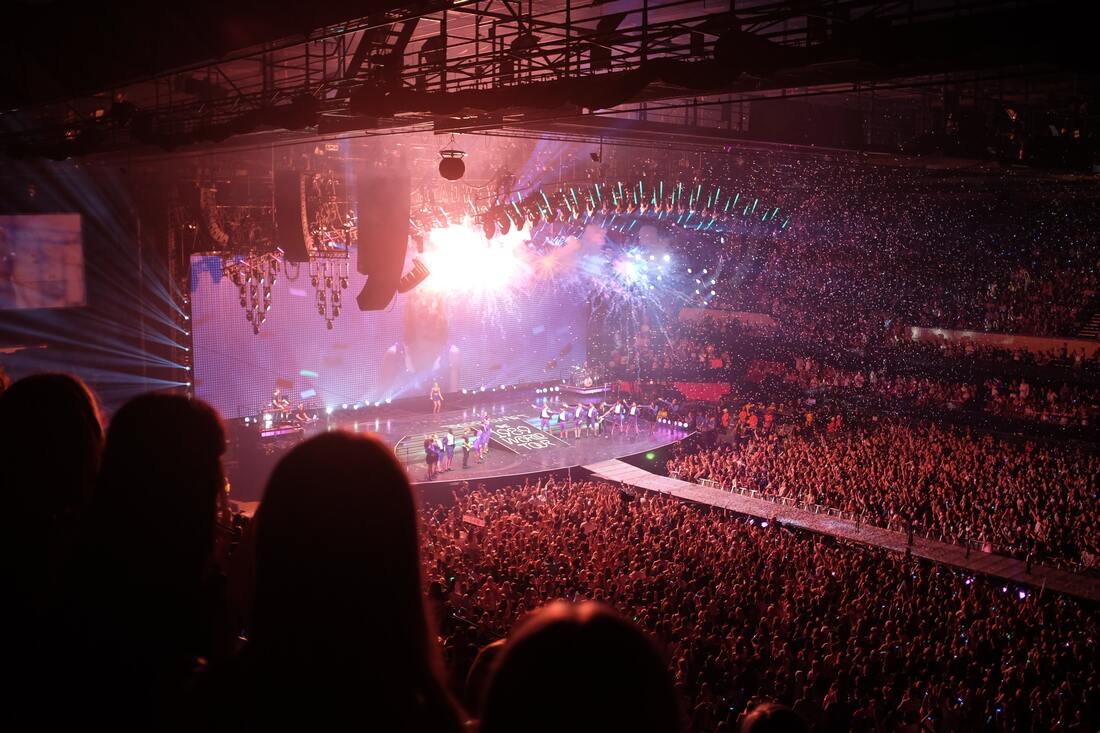

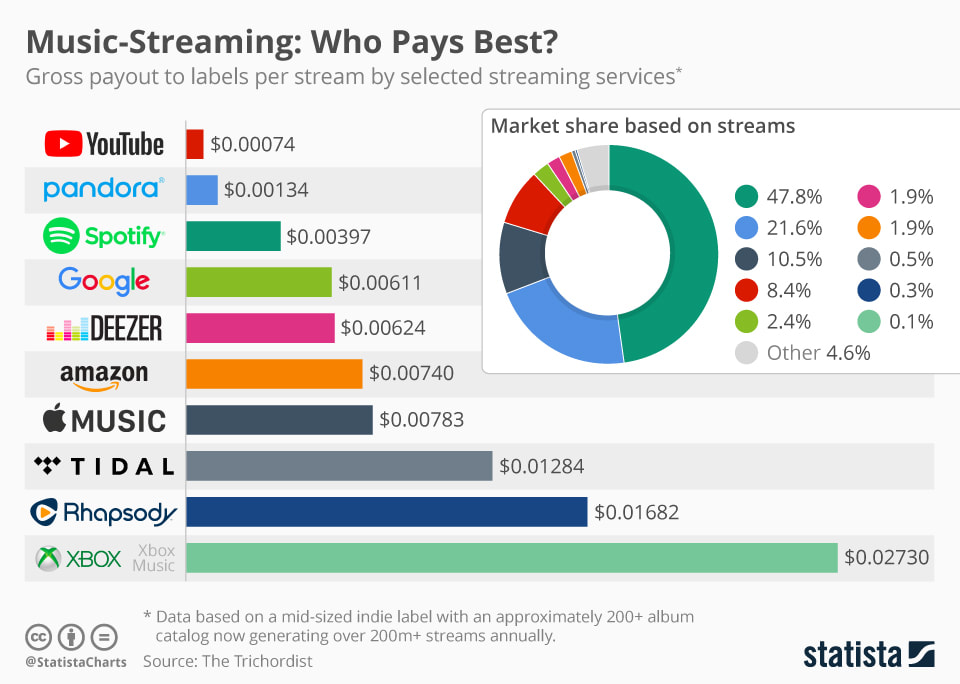
 RSS Feed
RSS Feed